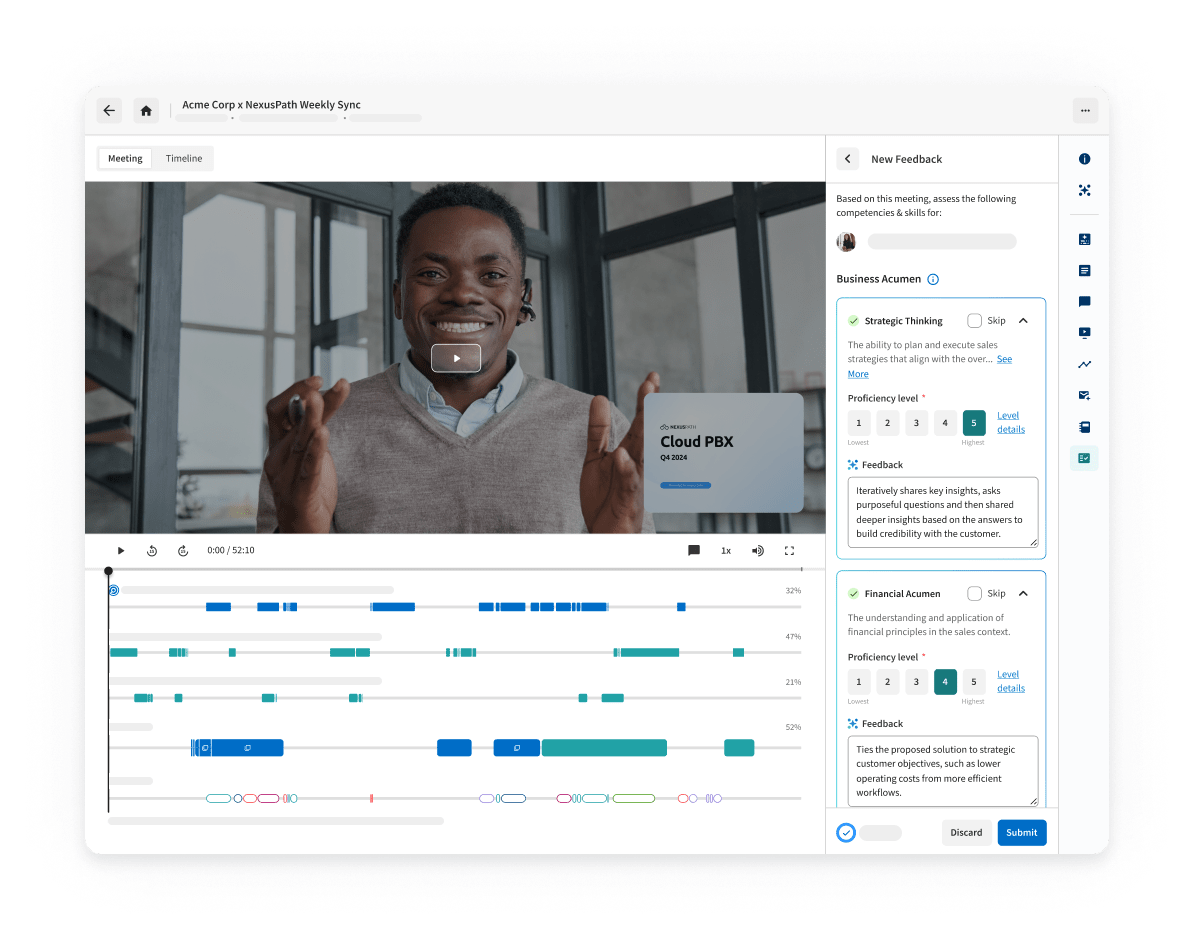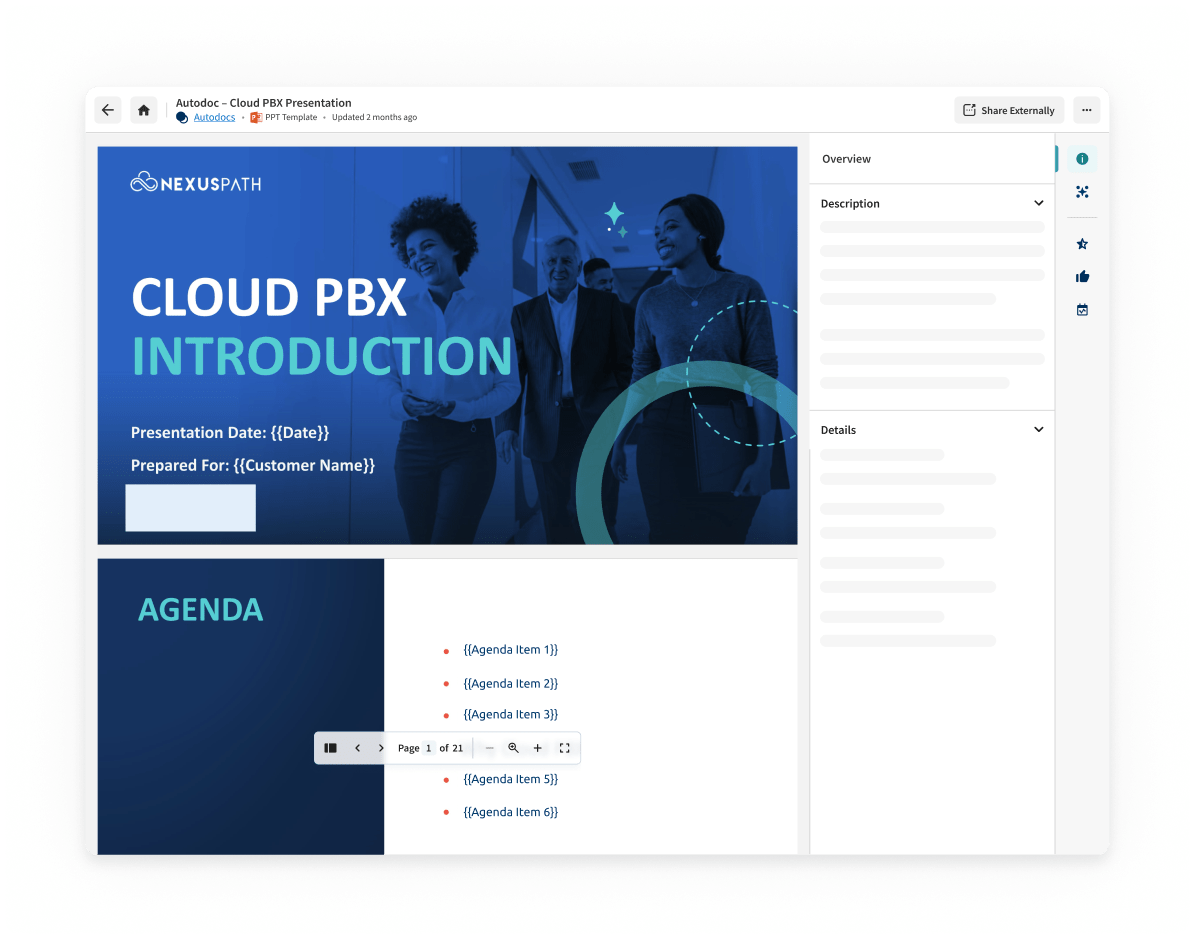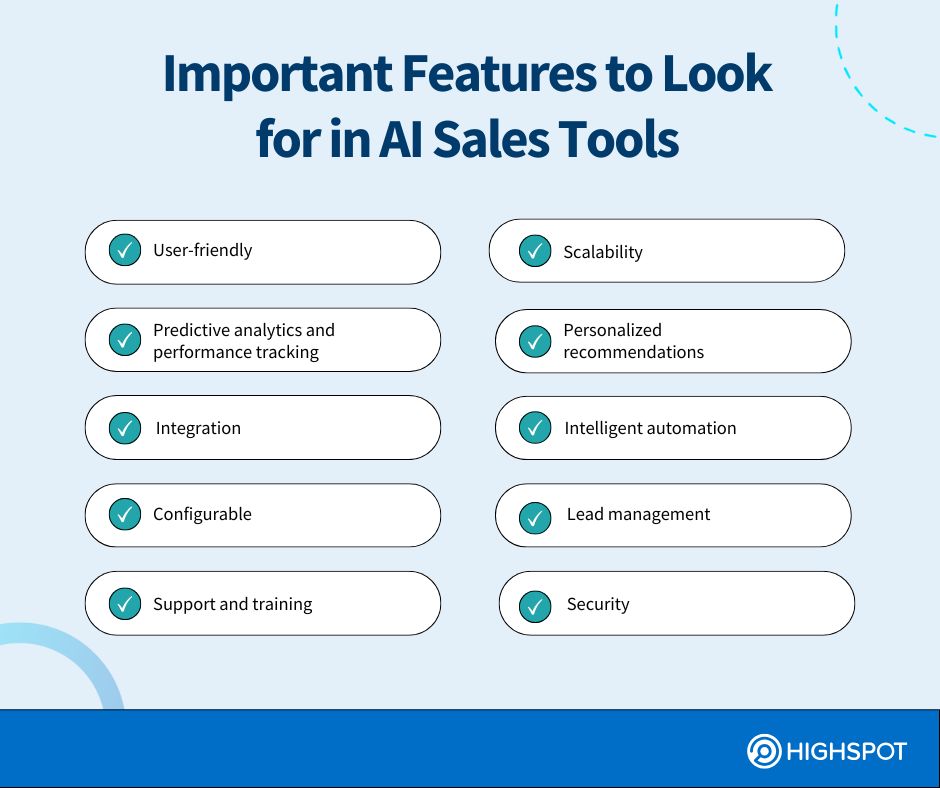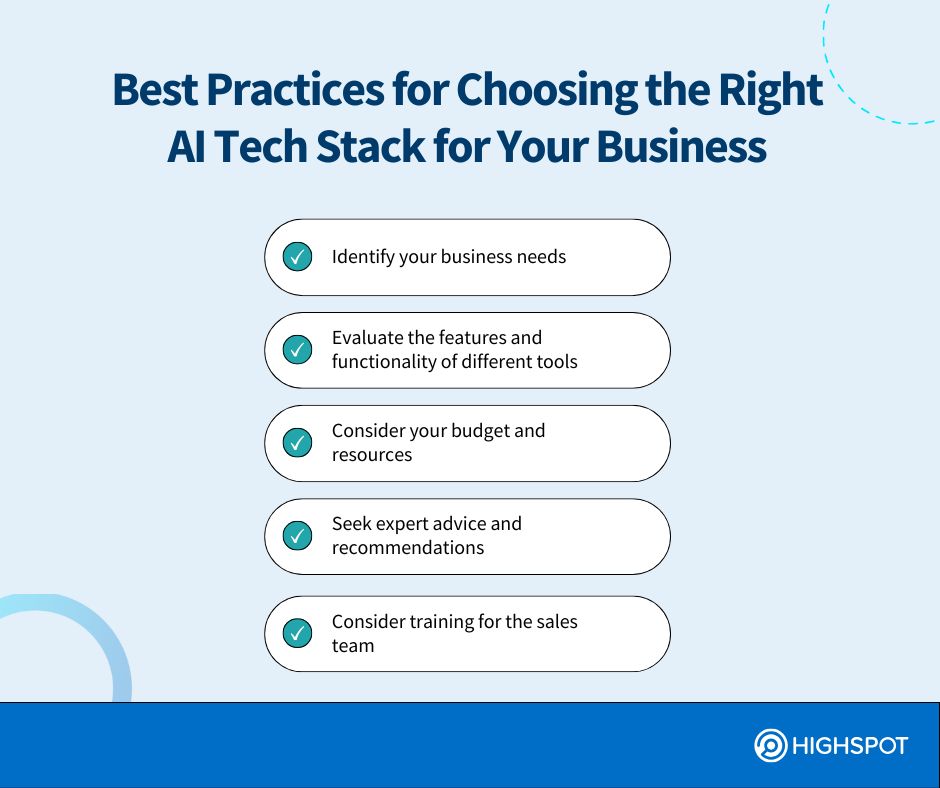Go-to-market (GTM) teams often face hurdles in hitting targets and meeting revenue growth expectations. Luckily, tech advances have paved the way for new solutions to refine sales processes and improve performance.
Enter Artificial Intelligence (AI) sales tools—a breakthrough development in sales.
Here, we’ll share everything you need to know about using AI for sales. We’ll look at what these tools are, why they matter, how to use them, and what to ask when evaluating vendors.
What Are AI Sales Tools?
AI sales tools are software solutions that use artificial intelligence and machine learning (ML) to optimize the sales process. From chatbots and content generators to virtual assistants, they empower GTM teams to successfully build customer relationships, stay on top of interactions, and drive predictable revenue growth.
Typical uses of AI in sales include task and sales workflow automation, predictive lead scoring, and sales analytics.
Why Do AI Sales Tools Matter?
Traditional sales techniques often fail to meet today’s savviest business buyers’ demands. Manual tasks are laborious and time-consuming. They are also error-prone and cannot adapt to evolving B2B transactions. The solution – apply AI sales tools to existing sales processes for substantial improvements.
Our State of Sales Enablement Report 2025 found that 90% of organizations are either already using AI to support their go-to-market efforts or plan to start soon. And the impact is clear: businesses that invest in an AI tech stack have seen a revenue uplift of 3 to 15% and a sales ROI uplift of 10 to 20%, according to McKinsey and Company.
These stats underscore the critical role AI plays in modernizing sales, making it an essential tool for growth.
How Sales Teams Use Different Types of AI Sales Tools
AI technology supports many sales functions. These span data management to forecasting and lead generation.
Let’s explore the best AI sales tools that transform the way sales teams operate:
Sales Forecasting and Pipeline Management Tools
The Gartner State of Sales and Revenue Operations Survey reveals that 67% of sales ops leaders find creating accurate sales forecasts more difficult now than three years ago. Compounding this challenge, 78% of RevOps and sales leaders report a lack of correct data to make accurate forecasts.
AI-driven sales forecasting can help drive predictable revenue, an essential metric for GTM leaders. Platforms such as Gong and Clari help you understand where you stand in every deal and identify successful sales tactics. By leveraging ML algorithms, they help sales teams prioritize opportunities and take strategic action throughout the sales pipeline.
Lead Generation and Qualification
Tools like LeadIQ utilize AI algorithms to identify potential leads by analyzing customer data. It goes on to score and qualify these prospects, highlighting those with the highest likelihood of conversion. These tools also manage contact information and automate cold emails. They make finding and talking to the most promising opportunities easier, streamlining your sales outreach efforts.
Sales Coaching and Training
AI-driven coaching platforms like Highspot help sales teams develop the skills they need to succeed. They assess tone, pacing, and engagement levels, then provide personalized recommendations to help sales reps improve. Some tools even use AI training simulations so reps can practice different sales scenarios and refine their approach before speaking with prospects.
Sales managers also no longer have to wait for quarterly reviews to assess team performance. AI can surface key conversation patterns and real-time insights to track progress and provide instant feedback. With always-on coaching and just-in-time training, managers and reps stay in sync, creating a culture of trust and growth.
Related Resource: The Future of Sales Coaching: How AI Drives Sales Success

Sales Enablement
AI-powered sales enablement gives GTM teams the content, plays, and data they need to consistently perform at their best. Instead of digging through outdated documents, reps can quickly access the most relevant materials tailored to each stage of the buyer’s journey.
AI can analyze deal context, buyer behavior, and past interactions to recommend the right content—case study, pitch deck, or battle card—at the right time. That way, reps have the correct information to highlight value, handle objections, and move deals forward.
Beyond content recommendations, AI streamlines training and onboarding. New hires get tailored learning paths based on their skill levels, while seasoned reps receive continuous updates on messaging, data-driven insights, and best practices.
Related Resource: Guide to AI in Sales Enablement and Its Impact in 2025
Customer Relationship Management (CRM)
CRM software like Salesforce centralizes customer data, automates repetitive tasks, and provides valuable metrics. AI-powered lead scoring and predictive analytics features help sales and marketing teams identify likely buyers and connect with the target audience in more meaningful ways. Plus, Salesforce’s engagement platform can work well with many other tools, making sales operations smoother.
Content Generation and Automation
Tools like Taplio can analyze customer behaviors on social media platforms like LinkedIn. They automatically send tailored connection requests and messages to engage with potential customers. Meanwhile, generative AI like ChatGPT and Copy.ai can create personalized content for inbound and outbound sales emails and campaigns.

Besides that, AI-powered content automation can instantly generate custom proposals, PDFs, presentations, and documents using pre-approved templates. It helps reps assemble decks and materials based on industry, buyer persona, and product line, streamlining content creation within their existing sales workflow.
Important Features to Look for in AI Sales Tools
When assessing AI powered tools for your business, consider features and use cases that will have an impact now and in the future. These range from specific product functions to vendor attributes like market longevity, company culture, vertical specialty, and if you can build a lasting partnership with them.
Let’s explore some key product features to consider:

1. User-Friendly
Ensure the solution you select offers intuitive interfaces and easy navigation. Easy-to-follow user interfaces and logical navigation encourage adoption and usage, especially by sales teams that may not have technical expertise.
2. Predictive Analytics and Performance Tracking
Advanced dashboards and analytics capabilities enable sales organizations to project future sales outcomes, spot emerging trends, and make informed decisions based on data. For example, forecasting analytics allows sales representatives to better understand and predict customer preferences, enabling them to customize their strategies throughout the customer journey, including during sales negotiations.
Sales leaders also need clear, real-time insights to track performance, spot areas for improvement, and measure success. With instant access to sales intelligence reports, they can fine-tune incentives, provide targeted coaching, and make sharper, data-driven decisions.
3. Integration
Seamless integration with existing sales software allows for centralized management of CRM data and sales activities. Sales professionals shouldn’t waste time searching through multiple solutions to find information needed for a sales conversation with a customer.
4. Configurable
Look for tailored solutions that easily adapt to your sales team’s unique needs and preferences. The ability to configure ensures that the tool aligns perfectly with your workflow and processes without endless, expensive programming costs.
5. Support and Training
Dig into support and training resources to ensure the successful implementation and adoption of AI sales platforms. Comprehensive support and training can facilitate a smooth transition and maximize the ROI of the tools.
6. Scalability
Think about where you see your business in the future. Look for solutions that can adapt and expand with the needs of the business. Opting for scalable options means your investment continues to deliver value, even as your business evolves.
7. Personalized Recommendations
Sales reps excel when they understand their customers’ desires. However, predicting a customer’s requirements can be challenging. Find tools with AI-driven recommendations based on lead data to predict your prospect’s next move. AI will personalize recommendations and increase conversion rates.
8. Intelligent Automation
Data entry, scheduling, outreach, and follow-ups consume a sales rep’s day. These are all necessary but take them away from working directly with customers.
Automating these routine tasks using AI increases sales performance. Their time is now free to focus on high-value activities like building relationships and closing deals.
9. Lead Management
Advanced lead enrichment and management capabilities change the way leads are handled. They prioritize leads, improve segmentation, track customer interactions, and nurture relationships throughout the sales cycle. This important feature analyzes data patterns so sales reps can focus on high-potential opportunities, leading to increased revenue.
10. Security
Data breaches are at an all-time high. Enforcing robust security measures, such as encryption, access controls, and regular security audits, safeguard sensitive information. Additionally, secure APIs and vendor security protocols are essential in preventing unauthorized access and staying compliant with data privacy regulations.
Best Practices for Choosing the Right AI Tech Stack for Your Business
Find technology that complements your team’s current capabilities and addresses unique challenges. Do you need to improve forecast accuracy, data analysis, or customer engagement? Is your team tech-savvy or just beginning to embrace digital transformation?
Let’s take a look at best practices for choosing the right AI sales tool:

Identify Your Business Needs
Define your sales objectives, challenges, and priorities to determine where AI sales tools will add the most value. Solicit feedback on pain points, feature preferences, and usability requirements to ensure the chosen tools align with your team’s workflows.
Evaluate the Features and Functionality of Different Tools
Different tools leverage AI for specialized tasks. Compare AI sales tools’ features, functionality, and cost implications to find the best fit for your requirements. Ask these questions as you evaluate:
- How well does it integrate with the sales software you’re already using?
- Does it offer the functionality that your sales process requires?
- Is it cost-effective for the scale on which your business operates?
- Can the tool scale to meet your future needs?
- Does the solution require training?
- Will it be difficult to onboard sales reps to use the new tool?
- What security measures are available to protect customer data?
- What are the different levels of support and maintenance offered?
Consider Your Budget and Resources
Look beyond the sticker price. Assess the initial implementation and training costs and the ongoing expenses and human resources needed to maintain these solutions. If you’re seeking a ‘set it and forget it’ solution, prioritize tools that are highly configurable to your needs without requiring a dedicated team for constant tweaking and management.
Seek Expert Advice and Recommendations
More than a cursory level of AI understanding is typically necessary as you evaluate solutions. Reach out to industry experts and analysts, especially those specializing in your industry and the AI sector. Also, don’t overlook the power of vendor customer references. Hearing firsthand experiences from peers implementing and currently using these AI tools can provide invaluable insights.
Consider Training for the Sales Team
Ensure the vendor offers thorough training sessions and guidance throughout the implementation and adoption phases. At the same time, incorporate this in your sales communications to reinforce onboarding. Neglecting to account for the time and resources required for adequate training could lead to underutilization of the tool, diminished ROI, and potential frustration among your sales team.
The Impact of Highspot’s AI Digital Assistant
Imagine having a smart assistant that brings all your content under one roof and serves up exactly what you need when you need it, thanks to some clever AI tricks. Highspot is making a big splash by simplifying how companies manage and utilize their sales materials.
Let’s explore the impact of Highspot through the experiences of Visa, SailPoint, and Demandbase.
How Visa Hones Sales Pitches in 30 Minutes
Visa struggled to keep up with the fast-paced demands of quarterly product launches while maintaining high-quality sales execution. With such a large global sales team, it was challenging to provide timely training that met performance goals and privacy standards.
To solve this, Visa rolled out an AI-powered coaching program with Highspot, boosting their efficiency with 60% well-governed content and a 17% increase in user engagement. It gave sellers instant feedback based on customized rubrics, allowing them to refine their pitches in as little as 30 minutes and build confidence.
Coaches also benefited from more streamlined and consistent feedback, making it easier to maintain compliance across the team. With real-time coaching and practice, sellers were able to enhance their skills quickly, leading to more effective product innovation in the field.
Transforming Enablement at SailPoint with Highspot
SailPoint‘s journey from a reactive to a proactive enablement model underscores the necessity of a single, unified platform for go-to-market strategy. The company’s reliance on AI and ML found a perfect match in Highspot.
Highspot provided a solution for equipping, training, and coaching their sales representatives. This partnership led to an improvement in sales engagement, a reduction in ramp time, and a 40% increase in productivity.
Related Resource: Webinar – Harnessing Enablement Success with AI
Demandbase Boosts Win Rate with AI Integration
Demandbase, a provider of ABM solutions, struggled to provide its sellers with tools for client conversations. Recognizing the potential of AI in enhancing B2B revenue achievement, Demandbase turned to Highspot to standardize messaging and guidance throughout the customer journey. This move empowered Demandbase’s revenue teams and led to a 10% increase in the average win rate.
AI tools like Highspot Copilot are changing the way sales teams work by turning scattered content into a streamlined powerhouse of resources. Teams with AI sales assistants are setting new standards. They are working with precision, foresight, and adaptability.
Looking ahead, the significance of AI in shaping sales strategies and operations is only expected to increase.
According to Gartner, 35% of chief revenue officers will have established a centralized “GenAI Operations” team within their go-to-market organizations.
This move stresses the critical role AI, including platforms like Highspot, plays in augmenting sales tasks and driving strategic decisions in forward-thinking sales departments.
Ready to see the difference artificial intelligence in sales can bring to your GTM initiatives?
Request a Highspot demo today.




